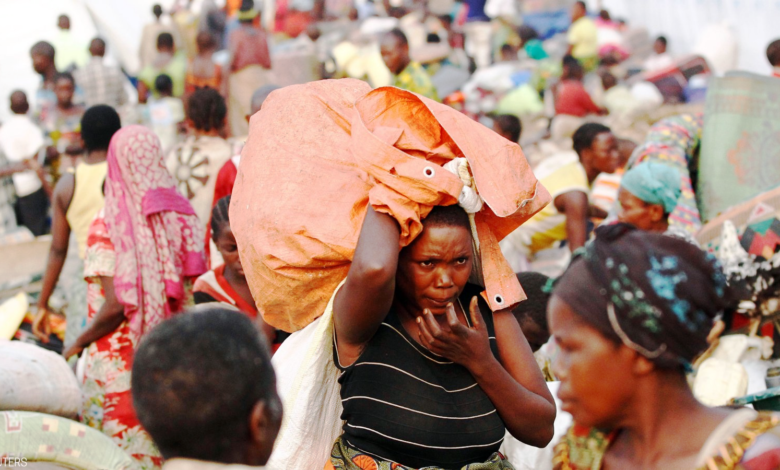Displaced Persons In DR Congo At Risk Of Further Attacks — UN
The UN human rights office says it fears heightened tension between Hema herders and Lendu farmers in eastern Democratic Republic of Congo may erupt into more attacks on displaced people.

The United Nations Human Rights Office (OHCHR) has called on authorities in the Democratic Republic of Congo to ensure civilian protection in the wake of recent deadly raids on camps for internally displaced persons (IDPs), warning of further violence amid heightened tension between Hema herders and Lendu farmers.
At least 62 internally displaced members of the Hema ethnic community were killed and 38 injured in their camp in Plaine Savo, Ituri province, in a late-night attack on Feb. 1 by members of the Cooperative for the Development of the Congo (CODECO) – a loose association of various Lendu rebel groups.
All the victims in the camp of 24,000 people were either shot or attacked with machetes and knives, according to Liz Throssel, the UN human rights spokesperson.
While the Congolese military authorities had launched a preliminary investigation into the Plaine Savo attack, the OHCHR said the investigation must be independent, effective, and transparent and perpetrators must be brought to justice.
Fear of retaliation
The assault was the latest in a string of CODECO raids in Ituri province, where tensions between the Hema and Lendu communities have existed for years while causing double displacement.
The group attacked four other IDP sites between Nov. 19 and 28, 2021, including the village of Drodro. At least 58 people from the Hema community were killed, with at least nine women and four children among the victims.
“In total, we documented 10 attacks on IDP sites in 2021 in Ituri, North Kivu and South Kivu, in which at least 106 people were killed, 16 injured and at least seven women subjected to acts of sexual violence,” Throssell said.
Asides from concerns that other IDP sites could be attacked, particularly Loda and Djaiba which are located close to Plaine Savo and host members of the Hema community, OHCHR said it feared a grave risk of retaliation by the Ituri Self-Defense Popular Front (FPAC-Zaire) armed group, mainly composed of members of the Hema community.
Although UN peacekeepers have been conducting joint operations with the Congolese army to prevent further escalation, attacks are still prevalent despite the government placing the provinces of Ituri and North Kivu under a “state of siege”, a martial law that gives exceptional powers to the army and police.
Human rights violations
Violation of human rights is compounding the humanitarian situation in the country, the agency said. In its latest report , the UN human rights office said that 6,989 cases of human rights violations were documented in 2021 in the country, down nearly 12 per cent from 2020.
Around 60 per cent of the violations were carried out by armed groups in provinces affected by armed conflicts, where at least 2,024 civilians, including 439 women, were victims of summary executions.
Aside from CODECO, other significant armed groups, often acting with total impunity, include the Allied Democratic Forces (ADF), Mai-Mai, among others.
The report said state agents, including the national army, police and other security agencies accounted for 35 per cent of the violations, including the extrajudicial killings of at least 40 civilians.
Support Our Journalism
There are millions of ordinary people affected by conflict in Africa whose stories are missing in the mainstream media. HumAngle is determined to tell those challenging and under-reported stories, hoping that the people impacted by these conflicts will find the safety and security they deserve.
To ensure that we continue to provide public service coverage, we have a small favour to ask you. We want you to be part of our journalistic endeavour by contributing a token to us.
Your donation will further promote a robust, free, and independent media.
Donate HereStay Closer To The Stories That Matter




